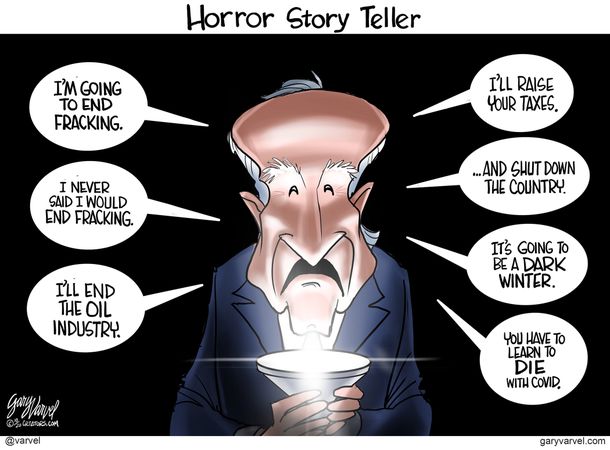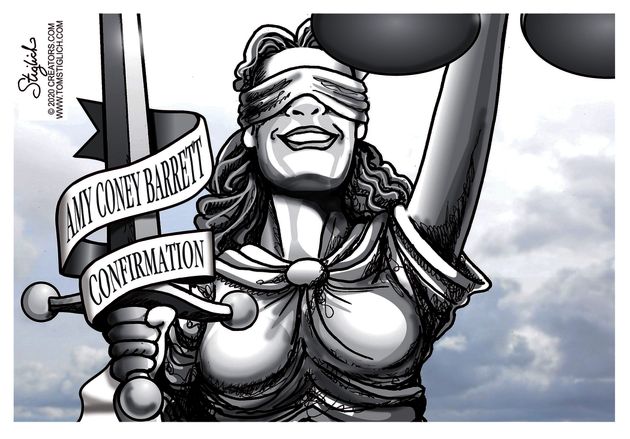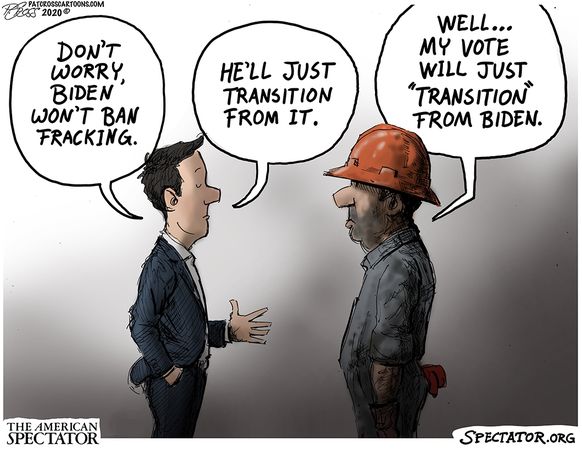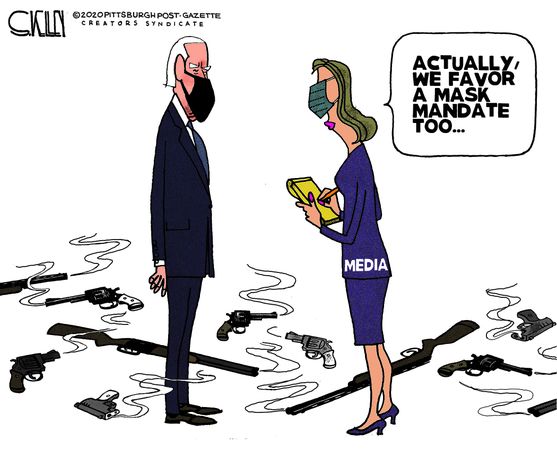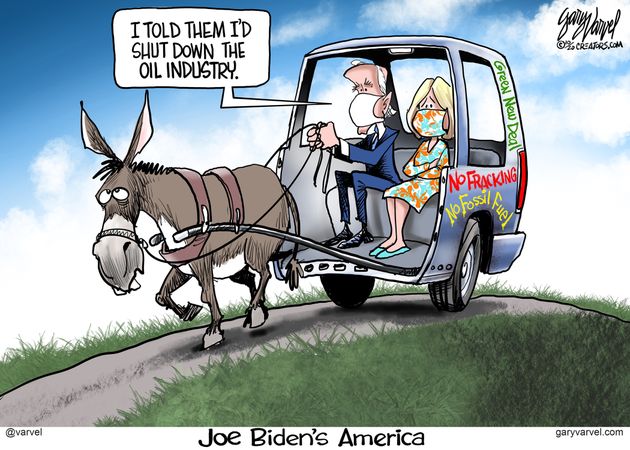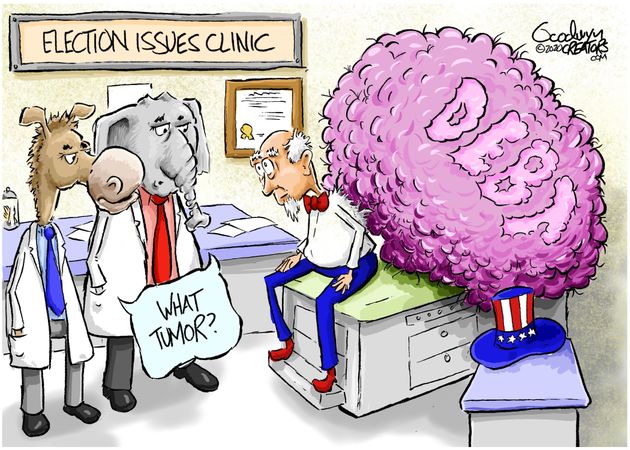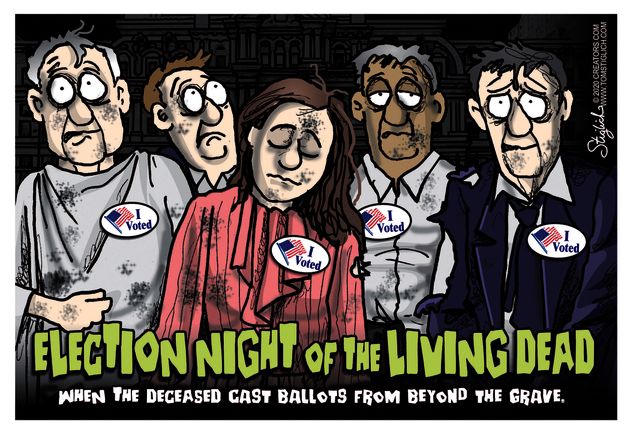I realize this is coming a full week after the hearing in question; in part, I decided to expand my discussion beyond what I originally intended.
Familiar readers know that the trigger that led me to leave the Democratic Party as conservative young man was the sabotage of the Bork nomination. The disgraceful personal attacks on Clarence Thomas and Brett Kavanaugh (after I left the GOP) validated that decision.
"Hell is paved with good intentions." We libertarians tend to read something with a different twist into the idiom: legislation with well-intentioned goals and/or even a politically contrived gimmicky name: who can object to "fair employment" or "affordable healthcare"? Surely only heartless, amoral, corrupt, selfish monsters would oppose an "I love mommies and puppy dogs act" (this is how I characterize these typically progressive legislative bills).
I eventually migrated to more of a conservative skeptic of government, as I saw LBJ's war on poverty ultimately stagnate and fail, creating a permanent underclass of entitled government dependents, a dysfunctional war on drugs (also note stupid foreign entanglements, public education deteriorating in our urban centers, and 101 other things). I started looking at legislation in more detail and questioning the need for government intervention in markets; what were the unintended consequences, moral hazards? Regulations and mandates as well as taxes increased costs in the private sector; quite often these have disparate effects on smaller companies and have the effect of reducing market competition, innovation and/or availability of goods and services. Various "temporary" fixes, like taxes and tolls, tend to become permanent and create dysfunctional self-serving inflexible bureaucracies.
The ObamaCare Kerfuffle and Preexisting Conditions
Government intervention in healthcare has been extensive and beyond the scope of this post, and I want to suggest that the issue leftists are using to promote ObamaCare, the principal ideological weapon being the hyped "pre-existing condition" coverage, which I'll discuss shortly; but to a large extent, this is an artifact of government policy. In a free market. buyers and sellers engage in voluntary exchanges. Sellers of healthcare services, unlike the federal government. cannot run at a loss in the long run. But public policies like community rating (i.e., you cannot charge more costly policyholders higher premiums) undermine availability. However, pre-ACA, you could buy insurance for the risk of developing a preexisting condition (at a fraction of the cost of typical insurance). Tying healthcare to jobs, a direct result of government policy, exacerbates the uninsured problem since even temporary COBRA coverage is more costly at a time when the household has less disposable income.
So let me give an example from personal experience. Other than for my weight, I've enjoyed good health most of my adult life. I've had jobs (all providing coverage) where I never saw a doctor and never even chose a personal physician available to my plan the entire duration of my job up to a few years long. During the Great Recession, I remember getting sticker shock at what COBRA would charge--almost the amount of my monthly rent. So health insurance is different than rent. You get the use of your apartment every day of the month. But I might see a doctor every few months and the a la carte cost of a doctor visit might be, say, $150 (vs a $750/month premium).
I looked at the individual market, which offered lower-costing policies than COBRA, when my job prospects in the short term seemed marginal at best and I had no unemployment or other income. And the main motivation I had was to control the risks for developing catastrophic, high-cost conditions like cancer. But as soon as I entered my height and weight, I was immediately rejected (and the premium was much more than than a doctor visit per month). I would later find out my BMI was higher than their cutoff. They sent me a follow-up explanation, suggesting I consider the MD assigned risk pool program. (I never did that, although I recall the risk pool premium, more than double the individual plan premium, was at least $100-150/month cheaper than my most recent COBRA offer would have been. I would have been willing to pay more than the individual policy premium I had applied for.) So, to stretch my savings, I did without coverage, and paid my assessed ObamaCare penalty/"tax" under the Obama Administration. By the time the Trump Administration waived the mandate coverage after 2017 tax reform, I have had continuous coverage, either job or COBRA.
The relevant point of my story was the availability of an assigned risk pool, basically a state program, had the practical effect of limiting my private sector options. And we see similar types of things happening after ObamaCare went into effect, with some studies showing the largest providers reducing charity care allocations on average going down by up to 20% or more with surging revenues. Michael Cannon has pointed out tradeoffs in quality for high-cost insured (e.g., restrictive network and prescription coverage, limited enrollment period) under ACA, never mind sky-rocketing deductibles, premiums, and less competition in the federal "marketplace": so much for "affordable healthcare". Unnecessary high-cost mandates (including "free" services) and regulatory overreach have had perverse effects on cost-effectiveness.
And, to an extent, you can understand the position of the insurance companies, especially in a rigged ACA marketplace: no one wants to be the preferred vendor of money-losing policyholders. The basic assigned risk pool concept is to separate and subsidize coverage for high-cost patients, funded by say a surcharge on policies overall, and so the costs are spread more evenly and do not depend on a company's underwriting proficiency.
I'm not going to do a comprehensive history on the federal government's failed intervention in the healthcare sector over the past but just a brief summary of points I've posted earlier in the blog:
- the government has artificially limited the number of physicians and other providers, limiting competition.
- the economically illiterate FDR administration had imposed wage and price controls as the labor supply was constrained by deployed warfighters during WWII. FDR accommodated employer pleas by allowing them to offer untaxed benefits as part of compensation while wage controls continued. The untaxed benefit stretched health care dollars and proved too unpopular to expire after the war. Unions and workers had every incentive to maximize the tax-free side of compensation, and insurance morphed into a variation of bundled health services, not real insurance; in the real world of insurance, ordinary expenses (say, in the context of auto insurance, things like gasoline purchases, oil changes, tire and battery replacement are different from covering your potentially significant liability for auto damage to other people and/or property) somehow melded into the construct of sharing the risks/costs of rare health issues. (The ultimate absurdity was during the corrupt development of ObamaCare, which Speaker Pelosi hyped with "free" physicals, breast exams and/or birth control .)
- The LBJ Administration introduced federal monopoly Medicare and Medicaid; along with social security, these entitlement programs account for nearly 70% of federal spending; nearly 40% of Americans are enrolled with them. Go figure. The feds don't have people spend food stamps in government supermarkets.
Ron Paul
often mentions the elderly weren't dying in the streets from health issues before Medicare, that many providers provided discounts or even donated care. (He has said that he won't even file reimbursement paperwork for his services for government healthcare.) And
Medicare is not "free"; there are premiums, co-pays and/or deductibles.
Now let's talk about a little about preexisting conditions. CMS
argues that 19% are/were uninsurable with preexisting conditions.(I don't find a date of the report, but their latest citation was 2011, and they make reference to ObamaCare being passed in the prior session of Congress, which implies it was published in 2011-2012.). The 19 state high risk pools automatically qualified people with the following conditions:
alcohol and drug abuse, chemical dependency, acquired immune deficiency syndrome (AIDS), Alzheimer’s disease, angina pectoris, anorexia nervosa, aortic aneurysm, aplastic anemia, arteriosclerosis, artificial heart valve or heart valve replacement, ascites, brain tumor, cancer (excluding skin), cancer (metastatic), cardiomyopathy/primary cardiomyopathy, cerebral palsy/palsy, chronic obstructive pulmonary disease (COPD), chronic pancreatitis, cirrhosis of the liver, congestive heart failure, coronary artery disease, coronary insufficiency, coronary occlusion, Crohn’s disease, cystic fibrosis, dermatomyositis, diabetes, emphysema/pulmonary emphysema, Friedreichs’s disease/ataxia, hemophilia, active and chronic hepatitis, HIV positive, Hodgkin’s disease, hydrocephalus, intermittent claudication, kidney failure, kidney disease, and kidney disease with dialysis, lead poisoning with cerebral involvement, leukemia, Lou Gehrig’s Disease/amyotophic lateral sclerosis (ALS), lupus erythematosus, disseminate, and lupus, malignant tumors, major organ transplant, motor or sensory aphasia, multiple or disseminated sclerosis, muscular atrophy or dystrophy, myasthenia gravis, myocardial infarction, myotonia, paraplegia or quadriplegia, Parkinson’s disease, peripheral arteriosclerosis, polyarteritis, polycystic kidney, postero-lateral sclerosis, psychotic disorders, silicosis, splenic anemia, True Banti’s syndrome, Banti’s disease, rheumatoid arthritis, sickle cell anemia and disease, Stills disease, stroke, syringomyelia (spina bifida or myelomeningocele), tabes dorsailis, thalassemia (Cooley’s or Mediterranean anemia), ulcerative colitis and Wilson’s disease.
In addition:
Individuals with five common conditions – arthritis, asthma, high cholesterol, hypertension, and obesity (BMI > 35) – were included in the second [insurers'] measure, as were individuals who had “ever been” diagnosed with arthritis, asthma, high cholesterol, or hypertension. These conditions were found to result in a denial, an exclusion of coverage for that condition, or a higher premium for individuals in all but one of the seven underwriting guidelines we examined.
[The broader category would raise the uninsured rate by about half.] Who were the people getting insured? Primarily they were in group coverages by job (including dependents and/or through marriage to a working spouse, and to a lesser degree through federal and/or state programs like Medicare and Medicaid).
We conservatives and/or libertarians tended to focus on any combination of a few alternative reforms to the abomination of ObamaCare, basically a bottom-up versus centralized approach (with its delusions of economies of scale and self-serving bureaucracies). Note this list isn't necessarily comprehensive:
- catastrophic health insurance
- enable cross-state/regional risk pools
- expand eligibility for self-insured options (e.g., like for large companies)
- let insurers regulated under any state to compete in other states
- reinsure against significant losses due to providing coverage to high risk individuals
- incentivize, shore up and expand high risk pools in states/regions
- end the double standard of tax benefits for employer-based health insurance vs. other types, including the individual policy market.
Now I do agree the idea of Republicans, in post-ACA legislation, promising "repeal and replace" were in the wrong place, especially with respect to the second goal. The latter validates the legitimacy of Statist public policy vs.
spontaneous order, an example of what Hayek famously called the "fatal deceit".
But the notion that ACA somehow is "the optimal" approach for handling high-cost individuals is purely partisan, indulgent rubbish. It makes more sense to spread the cost across the population vs. a small group of policyholders. All the latter does is to incentive healthier policyholders to leave a plan and find one more consistent with market pricing for their health status/lower cost or self-insure. The leftists argue without ACA, people with preexisting conditions will die in the streets (to reference Alan Grayson's infamous attack on more market-oriented Republicans). No, the vast majority will still find coverage like CMS found above. More decentralized risk pooling would be vastly more effective than the centralized approach and the ludicrous bribery of voters by promising "free" benefits like annual physicals, breast exams, and birth control. The whole idea of the individual mandate is to force healthier people to pay above-health status premiums to subsidize sicker beneficiaries, de facto transferism/mini-socialism. The latter may be a political goal but not an actuarial one.
Why Judge Barrett Is Being Attacked Over ObamaCare
"
In December of 2017 the Tax Cuts and Jobs Act was passed, reducing the corporate tax rate and repealing the ACA individual mandate." One of the corrupt bargains struck between the Democrats in the 111th session of Congress and Big Health Insurance was one over the individual mandate. Basically the Big Insurers argued that if they were forced to carry new policyholders at a loss, this would undermine their viable business model. They needed some concessions, e.g., some subsidies from the government and/or government sending more business (e.g., of more profitable young, healthier policyholders) their way, i.e., an insurance mandate. [To some extent, government did some of its share of the market by expanding Medicaid, whose costs have traditionally been split between the federal and state government. I don't think the government wanted Big Insurance to cherry-pick the healthiest risks and leave them with the most costly ones. That's part of the rationale for Statists pushing nationalized heath care.]
The mandate has been unpopular for obvious reasons. In terms of my own example above, I was willing to purchase stripped-down insurance for sharing the risk of major medical expenses. But health insurance had morphed into bundled heath care services, including costly benefits not even relevant. I was in effect paying almost as much for (largely unused) insurance as for rent. In a real free market, I would be able to pick and choose relevant coverage. But paternalist Statists have rules on what types of health insurance qualify for the market. So even though I was covering my own health expenses, because it wasn't going through an approved insurance company's plan, the government was penalizing me. To many of us pro-liberty folks, that is an
unconstitutional direct tax which defies the construct of a federal government with enumerated powers. Health insurance appears nowhere in the Constitution (in fact, its origins seem to have emerged in the 1920's (according to Google). I would also add generally speaking healthcare has traditionally been regulated by the states under the Tenth Amendment.
What does all this have to do with Judge Barrett? Well, even though the bill and Obama himself referred to it as a penalty, not a tax, the Administration on the appeal to SCOTUS sought a strategy of defending it under Congress' broad tax authority. Chief Justice Roberts, the swing vote, basically agreed. This is patently absurd on its face. The purpose of a tax is to generate revenue for government. The purpose of a penalty is compel compliance, i.e., ideally no government revenue. There is no relevant transaction, e.g., the purchase of something, an income event, etc. Instead, what's being taxed is a non-event, and there're an infinite number of non-events.
So
here's what I think has got the pro-ACA Dems in revolt in a commentary on libertarian legal expert
Randy Barnett's Our Republican Constitution (I am in much agreement with Barnett's views, particularly in opposition to judicial restraint on tyranny of the majority):
In NFIB v. Sebelius, the inspiration for Barnett’s book, Chief Justice Roberts pushed the Affordable Care Act beyond its plausible meaning to save the statute. He construed the penalty imposed on those without health insurance as a tax, which permitted him to sustain the statute as a valid exercise of the taxing power; had he treated the payment as the statute did—as a penalty—he would have had to invalidate the statute as lying beyond Congress’s commerce power....
Barnett is surely right that deference to a democratic majority should not supersede a judge’s duty to apply clear text...a judge who adopts an interpretation inconsistent with the text fails to enforce the statute that commanded majority support. If the majority did not enact a “tax,” interpreting the statute to impose a tax lacks democratic legitimacy.
So Barrett here is criticizing Chief Justice Roberts for calling a penalty a tax despite plain text in the bill. SCOTUS has focused on the
Commerce Clause on applying to commercial activity, not inactivity. And so, in essence, the 2017 tax reform included a Trojan horse that killed the "tax" Chief Justice Roberts protected in upholding its constitutionality. The State of Texas filed suit challenging ObamaCare
and succeeded at the district and court of appeals; SCOTUS hears this case about a week after the election next month, and the Dems are furious over the prospect of a Justice Barrett being confirmed before the case is heard.
Democrats Grandstanding at Judge Barrett's Expense
Now I haven't read much of Judge Barrett's scholarship (beyond the above excerpt), but if you read her full essay, you will find her views more nuanced, detailed and articulate that her opposition would lead you to believe. I believe she would have issues with parts of ObamaCare, but maybe not the whole law.
Nobody disagrees with the goal of availability of health care options for preexisting condition individuals. We differ on the approach; for example, I've hinted you could take a Medicaid type approach where the feds and the states split the costs for high risk pools and the states administer the program. I would like to see regulatory reform enabling new, alternative plans.
I heard the Senate Judiciary Dems basically harping on three points: ObamaCare, abortion, and Trump. They produced numerous moving anecdotal stories how high-cost individuals/families found previously unavailable or cost-prohibitive coverage but available through ObamaCare. They fear-monger on an unlikely reversal of Roe v Wade because Barrett is a pro-life Catholic mother of 7 (never mind the fact that 5 current Justices are Catholic and Roe v Wade survives). Never mind the fact that many practicing Catholic members of Congress as well as Joe Biden have supported abortion access despite reporting being personally opposed to it. Trump has been quoted as say he would never select a jurist who did not support XYZ. Well, Trump is very good at hype, and he knows his judicial nominees are highly popular among his conservative base. But once confirmed, the justice is independent of the President and has a lifetime appointment; take into account, for example, both Gorsuch and Kavanaugh
voted against Trump's position on his personal taxes and financial records.
As a teaching fellow and professor, I gave a number of students I didn't necessarily like a good grade; I ended up failing a student at UTEP who was supportive of me. (In the latter case, he failed to turn in computer assignments that were part of his grade; if he needed help, I would have given it to him. But he didn't give me a choice. I didn't fail many students; they usually would drop out early.) But I had a strict code of professional behavior.
Judge Barrett is a highly intelligent, capable, principled jurist who will judge cases on their merit, and the outcomes may not be consistent with his or her personal preferences. Democrats see judges as super-legislators for whom the progressive end justifies the means. The means are subject to the Constitution and its relevant enumerated powers of the Congress. For Judge Barrett, the means are everything; she must be confirmed.
